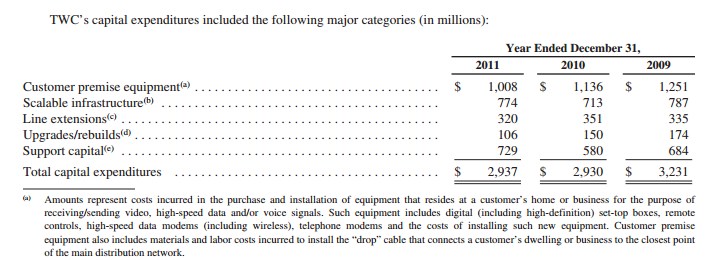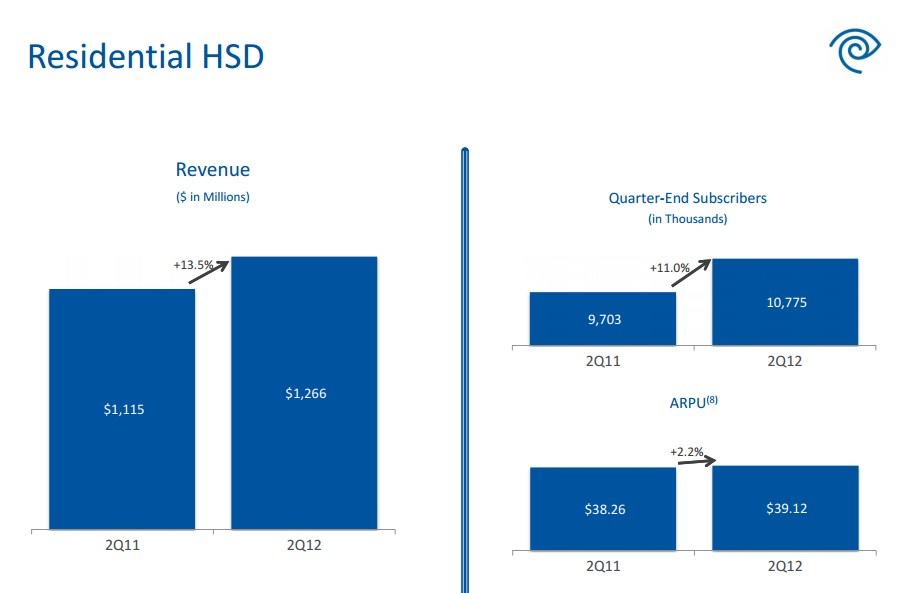 Time Warner Cable will increase the broadband speed for its most popular Standard service to 15/1Mbps across the country over the next 60 days.
Time Warner Cable will increase the broadband speed for its most popular Standard service to 15/1Mbps across the country over the next 60 days.
With increased competition from Verizon’s FiOS fiber to the home network and AT&T U-verse, Time Warner is boosting Internet speeds to stay competitive with aggressive promotions on offer from phone companies throughout its service area.
Rob Marcus, chief operating officer for Time Warner, today told investors U-verse was available in about a quarter of the company’s footprint, with Verizon FiOS offering service in 12% of the areas where the cable company provides service.
“Last quarter, U-verse featured fairly aggressive double play promotions, especially in Texas and the midwest, while FiOS continued to aggressively enter new buildings in New York City,” Marcus said.
Time Warner Cable failed to meet investor expectations for broadband growth during the third quarter, and some are questioning the company’s wisdom narrowly-targeting promotions to specific segments of its customer base. Bloomerg Industries analyst Paul Sweeney suggested the company was struggling to market the correct bundles of services to its customers.
Marcus reported Time Warner has seen the largest growth in DOCSIS 3.0 enhanced broadband so far, with 73,000 new customers signing up for the company’s 30/5Mbps Extreme tier or 50/5Mbps Ultimate tier during the last quarter. Combined with Turbo customers, this represents over 22% of all Time Warner’s residential broadband customers.
But while the company celebrated its new revenue from cable modem rental fees, the new charge has alienated a number of customers, some now shopping around for a better deal from competitors.
“In essence, this is a rate increase on [broadband] service, but the key is our customers have a choice,” Marcus said. “If customers prefer to buy their own modem from a qualified list of options, we’re all for it. After all, if the modem is on the customer’s balance sheet, that is less capital expense for us and fewer truck rolls.”
Marcus’ statement conflicts with one made earlier by Joli Plucknette-Farmen, communications manager for Time Warner Cable in western New York. She told WGRZ-TV last month the new fee was not a “rate hike dressed up as a fee”, as some critics have suggested.
The company made no announcements about increasing the speeds of its higher-speed tiers to maintain their value in light of the forthcoming speed increase for Standard service.


 Subscribe
Subscribe









